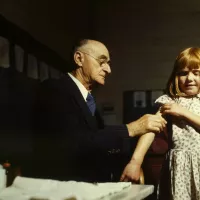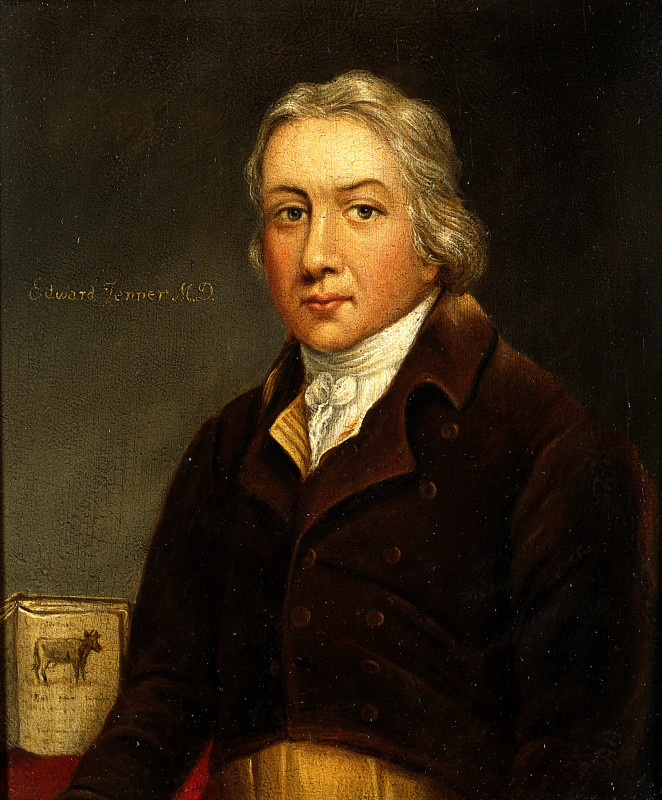Greenland is an autonomous territory within the Kingdom of Denmark, situated between the Arctic and Atlantic Oceans, and east of the Canadian Arctic Archipelago. It's the world's largest island and home to Kaffeklubben Island, the northernmost point of land. Nuuk is its capital and largest city. Though part of the Kingdom of Denmark, Greenland operates as one of the Overseas Countries and Territories of the European Union and participates in the Council of Europe. Economically, it relies heavily on financial aid from Denmark, which constitutes a significant portion of its public revenue.
1900: Greenland begins warming
Around 1900, Greenland started to experience warming temperatures, contributing to changes in its ice sheet mass balance.
1900: First Record of Kaffeklubben Island
In 1900, Kaffeklubben Island was first recorded.
1900: First Complete Bible Translation
The first translation of the whole Bible in Greenlandic was completed in 1900.
1921: First Visit to Kaffeklubben Island
In 1921, Kaffeklubben Island was first visited.
1925: Law allows governors to take control under extreme circumstances
In 1925, Governor Eske Brun ruled Greenland under a law that allowed governors to take control under extreme circumstances.
July 1931: Norway occupies eastern Greenland
In July 1931, Norway occupied then-uninhabited eastern Greenland as Erik the Red's Land, claiming that it constituted terra nullius.
1933: The Permanent Court of International Justice ruled against Norway.
In 1933, Norway and Denmark agreed to submit the matter to the Permanent Court of International Justice, which decided against Norway's occupation of eastern Greenland.
1940: Greenland remained a protected and isolated society until 1940
Until 1940, Greenland had been a protected and very isolated society with a strict monopoly on Greenlandic trade was maintained.
1940: Greenland remains protected and isolated
Until 1940, Greenland had been a protected and very isolated society with the Danish government maintaining a strict monopoly of Greenlandic trade.
1942: Danish Sirius Patrol guarded the northeastern shores of Greenland
In 1942, the Danish Sirius Patrol guarded the northeastern shores of Greenland using dog sleds, detecting German weather stations and alerting American troops.
1945: End of US occupation of Greenland
In 1945, the United States ended its occupation of Greenland after World War II concluded.
1946: Commission recommended patience and no radical reform of the system
In 1946, a commission including the highest Greenlandic council, the Landsrådene, recommended patience and no radical reform of the system.
1946: United States offered to buy Greenland from Denmark
In 1946, following World War II, the United States offered to buy Greenland from Denmark for $100,000,000; Denmark rejected the offer.
1950: Strict monopoly on Greenlandic trade was maintained, until it was abolished in 1950.
In 1950 the strict monopoly on Greenlandic trade was abolished and with the G-50 report, the first steps toward the modernization of Greenland were taken.
1950: Final report (G-50) was presented
In 1950, a final report (G-50) was presented, recommending the introduction of a modern welfare state with Denmark's development as sponsor and model.
1950: Radio station Jørgen Brønlund Fjord ends service
Until 1950, the radio station Jørgen Brønlund Fjord was the northernmost permanent outpost in the world.
1951: Denmark and the United States signed the Greenland Defense Agreement
In 1951, Denmark and the United States signed the Greenland Defense Agreement, which allowed the United States to keep its military bases in Greenland.
1951: Survey Concludes Greenland is Three Islands
In 1951, a survey led by French scientist Paul-Emile Victor concluded that Greenland, under the ice sheet, is composed of three large islands separated by narrow straits. This conclusion remains disputed.
1951: Greenland Defense Agreement
The 1951 Greenland Defense Agreement allowed the United States to keep its military bases there, and to establish new bases with the consent of Greenland and Denmark, if deemed necessary by NATO.
1952: Integration of Greenland into the Danish Realm
In 1952, Denmark opted to integrate Greenland into the Danish Realm following a United Nations mandate on colonies.
1953: U.S. greatly expanded Thule Air Base
Between 1951 and 1953 the United States greatly expanded Thule Air Base as part of a unified NATO defence strategy, which resulted in the relocation of the local population.
1953: Greenland became an equal part of the Danish Kingdom
In 1953, Greenland was made an equal part of the Danish Kingdom.
1953: End of colonial status
In 1953, Greenland's status as a colony ended with the Constitution of Denmark, integrating it fully into the Danish state.
1953: Greenland's colonial status ended
In 1953, with the Danish constitution, Greenland's colonial status ended, and the island was incorporated into the Danish realm as an amt (county). Danish citizenship was extended to Greenlanders.
1957: Denmark's Nuclear-Free Zone Policy
In 1957, Denmark established a nuclear-free zone policy, which was later found to have been contravened regarding Greenland.
1960: Project Iceworm managed from Camp Century
From 1960, Project Iceworm, a secret U.S. project to construct a subterranean network of nuclear missile launch sites in Greenland, was managed from Camp Century.
1966: Abandonment of Project Iceworm
In 1966, Project Iceworm, a secret U.S. project to construct a subterranean network of nuclear missile launch sites in Greenland, was abandoned as unworkable.
January 1968: B-52G Crash at Thule Air Base
On 21 January 1968, a B-52G aircraft, with four nuclear bombs aboard, crashed on the ice of the North Star Bay while attempting an emergency landing at Thule Air Base. The resulting fire caused extensive radioactive contamination, and one of the H-bombs remains lost.
1968: Crash of a nuclear-equipped B-52 bomber near the Thule air base
In 1968 a nuclear-equipped B-52 bomber crashed near the Thule air base.
1969: Survey of Kaffeklubben Island
In 1969, a Canadian team surveyed Kaffeklubben Island and determined that its northernmost point is further north than Cape Morris Jesup, establishing it as the northernmost undisputed permanent land.
1972: Denmark began to seek a different status for Greenland
Due to political complications in relation to Denmark's entry into the European Common Market in 1972, Denmark began to seek a different status for Greenland.
1973: Border dispute between Denmark and Canada arose over the ownership of Hans Island
In 1973, a border dispute between Denmark and Canada arose over the ownership of Hans Island, a small island in Nares Strait directly between Greenland and the Canadian territory of Nunavut.
1973: Revision of Greenlandic Orthography
In 1973, the orthography of Greenlandic, established in 1851, was revised.
1978: Discovery of Oodaaq Island
In 1978, Uffe Petersen from the Danish Geodetic Institute discovered Oodaaq Island at 83° 40' 32.5" N.
January 1979: Referendum was held on 17 January 1979
On January 17, 1979, a referendum was held in Greenland, leading to the Home Rule Act.
May 1979: Home Rule Act came into effect
On May 1, 1979, the Home Rule Act came into effect in Greenland, granting limited autonomy.
1979: Home rule granted to Greenland
In 1979, Denmark granted home rule to Greenland following a referendum.
1979: Introduction of Home Rule for Greenland
In 1979, the Danish government and parliament introduced home rule for Greenland, allowing Naalakkersuisut to assume control over 17 different areas of government.
1979: Last Confirmed Sighting of Oodaaq Island
In 1979, the last confirmed sighting of Oodaaq Island was recorded.
1979: Rasmus Lyberth at Eurovision
Rasmus Lyberth performed in Greenlandic in the Danish national final for the 1979 Eurovision Song Contest.
1979: Home Rule Establishment
Since the establishment of home rule in 1979, Danish and West Greenlandic Kalaallisut have been used in public affairs.
1985: Greenland left the European Economic Community (EEC)
In 1985, Greenland left the European Economic Community (EEC), as it did not agree with the EEC's commercial fishing regulations and an EEC ban on sealskin products.
1985: Greenland Leaves EEC
In 1985, Greenland left the European Economic Community (EEC), while Denmark remained a member.
1987: The University of Greenland was founded
In 1987, the University of Greenland was founded to provide Greenlanders with higher education in their own language and country.
1989: Establishment of Summit Camp
In 1989, the year-round station Summit Camp was established on the ice sheet in the central part of Greenland.
1990: Closure of Lead and Zinc Mine
In 1990, Greenland registered a foreign-trade deficit following the closure of its last lead and zinc mine.
1990: Regulation on Education Adopted
In 1990, a regulation governing education was adopted, later amended in 1993 and 1994, making linguistic integration compulsory in schools.
December 1991: Lowest Temperature Recorded in Northern Hemisphere
In December 1991, the lowest temperature ever recorded in the Northern Hemisphere was registered in Greenland, close to the highest point of the Greenland Ice Sheet, reaching −69.6 °C (−93.3 °F).
1991: Greenland Takes Control of Healthcare
After Greenland took control of its healthcare system in 1991, Greenlandic doctors also carried out the same illegal procedures on several Inuit women.
1992: EEC Becomes EU
In 1992, the EEC was renamed and expanded to become the European Union (EU).
October 1993: Regulation on Vocational and Technical Education
Regulation No. 16 of 28 October 1993 on Vocational and Technical Education, Scholarships and Career Guidance governs the secondary education system.
1993: Amendment to Education Regulation
In 1993, a regulation governing education, adopted in 1990 and later amended in 1994, making linguistic integration compulsory in schools.
1993: Economic Improvement in Greenland
Since 1993, Greenland's economy improved after an economic contraction in the early 1990s.
1994: Amendment to Education Regulation
In 1994, a regulation governing education, adopted in 1990 and amended in 1993, making linguistic integration compulsory in schools.
1995: Political Scandal Over Nuclear Weapons
In 1995, a political scandal in Denmark occurred after a report revealed the government had given tacit permission for nuclear weapons to be located in Greenland, in contravention of Denmark's 1957 nuclear-free zone policy.
1996: Greenland Ice Sheet Mass Loss Exceeds Gains
After 1996, Greenland did not have a single year where it did not lose mass on average.
1996: Documents declassified related to Project Iceworm
In 1996, documents declassified revealed the existence of Project Iceworm, a secret US project to construct a subterranean network of nuclear missile launch sites in Greenland from 1960-1966.
1997: Danish government learns the mission of Project Iceworm
In 1997, the Danish government discovered the true mission of Project Iceworm while looking in declassified documents for records related to the 1968 crash of a nuclear-equipped B-52 bomber near the Thule air base.
1997: Amendment to Government Ordinance on Public Schools
Section 1 of the Government Ordinance on Public Schools, amended in 1997, requires Greenlandic as the language of instruction.
2000: Improved Bible Translation
In 2000, an improved translation of the Bible, using the modern orthography, was completed.
2001: National Handball Team Ranking
In 2001, the men's national handball team was ranked among the top 20 in the world.
August 2002: Creation of Nanoq Media
On 1 August 2002, Nanoq Media, a local television channel, was created in Nuuk. It is the largest local television station in Greenland, reaching more than 4,000 households as receiving members.
2002: Discovery of Rapid Glacier Shrinkage
In 2002, it was discovered that the glacier covering Uunartoq Qeqertaq was shrinking rapidly, leading to the eventual exposure of the island.
2003: Discovery of 83-42
In 2003, Arctic explorer Dennis Schmitt and his team discovered a small protrusion of rocks and boulders at latitude 83° 42' N, unofficially named 83-42.
2007: Mining of Ruby Deposits and Gold Production Begins
In 2007, mining of ruby deposits began, and gold production started in Greenland. The state company Nunamineral was launched on the Copenhagen Stock Exchange to raise more capital.
2007: Announcement of Uunartoq Qeqertaq
In 2007, the existence of a new island, "Uunartoq Qeqertaq" (Warming Island), was announced. The island, previously covered by a glacier, was exposed due to rapid melting and named Place of the Year by the Oxford Atlas of the World in 2007.
2007: Literacy Rate
In 2007, the literacy rate in Greenland was 100%.
November 2008: Greenland voters approved a referendum on greater autonomy
On November 25, 2008, Greenland voters approved a referendum on greater autonomy.
2008: Greenlanders vote for Self-Government Act
In 2008, Greenlanders voted for the Self-Government Act in a referendum, transferring more power from the Danish government to the local Greenlandic government.
2008: Referendum on Self-Governance
In 2008, a non-binding referendum on self-governance was passed, with 76.22% of the vote favoring increased self-governance and autonomy.
June 2009: Greenland gained self-rule
On June 21, 2009, Greenland gained self-rule with provisions for assuming responsibility for self-government of its judicial affairs, policing matters, and natural resources.
2009: Fish Species Known in Greenland Waters
As of 2009, 269 species of fish from over 80 different families are known from the waters surrounding Greenland, with the fishing industry being the primary contributor to Greenland's economy.
2009: Inuit Tapiriit Kanatami formally switched to the Inuktitut Nunangat
In 2009 the Inuit Tapiriit Kanatami formally switched to the Inuktitut Nunangat to reflect the integral nature "land, water, and ice" have to Inuit culture.
2009: Annual Subsidization from Denmark
In 2009, Denmark's annual subsidization to Greenland was 3.6 billion kr.
2009: Abolition of Counties and Municipalities Reorganization
In 2009, Greenland abolished its three counties consisting of 18 municipalities, and reorganized into larger territories known as "municipalities".
2009: Greenlandic Becomes Sole Official Language
In 2009, Greenlandic became the sole official language of Greenland.
2009: Greenland Self-Government Act
In 2009, the "Greenland Self-Government Act" (GSGA) added 33 new areas of government to the pool the Naalakkersuisut assume control over, and gave a legal section for Naalakkersuisut to trigger an independence process.
2009: Decline of Democrat Party in Election
The 2009 election saw the unionist Democrat Party decline greatly.
2010: Highest Suicide Rate in the World
According to a 2010 census, Greenland held the highest suicide rate in the world.
2010: Alcohol Consumption Rate
By 2010, the rate of alcohol consumption in Greenland had fallen slightly below that of Denmark, after peaking in the 1980s.
2010: Laws Prohibiting Hate Speech Against LGBTQ+ Persons
Since 2010, Greenland has had laws prohibiting hate speech against LGBTQ+ persons.
2012: Contribution of Greenland Melting to Sea Level Rise
Between 2012 and 2017, the melting of Greenland added an average of 0.68 mm per year to sea level rise, constituting 37% of sea level rise from land ice sources.
2012: Greenlandic declared sole official language
In 2012, Greenlandic was declared the sole official language of Greenland at a historic ceremony.
2012: Massive Melting Event on Greenland Ice Sheet
In 2012, a "massive melting event" occurred, causing the entire surface of the ice sheet to melt without accumulation.
2013: Greenland Refuses to Restrict China's Rare-Earth Mineral Projects
In early 2013, the government of Greenland announced it would not restrict rare-earth mineral development by the People's Republic of China, despite the European Union urging them to do so.
2013: Consolidation of Power by Main Parties
The 2013 election consolidated the power of the two main parties at the expense of smaller groups, and saw the eco-socialist Inuit Party elected to the Parliament for the first time.
2014: Snap Election
Following the snap 2014 election, the dominance of the Forward and Inuit Community parties began to wane.
2015: Genetic Study of Greenlanders
A 2015 genetic study found modern-day Inuit in Greenland are direct descendants of the first Inuit pioneers of the Thule culture, with approximately 25% admixture of European colonizers from the 16th century.
2015: Tourism Increase
Tourism in Greenland increased significantly between 2015 and 2019.
2016: Law Allowing Legal Gender Changes Passed
In 2016, a law passed by decree in Greenland allows legal gender changes based on self-determination.
2017: Contribution of Greenland Melting to Sea Level Rise
Between 2012 and 2017, the melting of Greenland added an average of 0.68 mm per year to sea level rise, constituting 37% of sea level rise from land ice sources.
2017: Discovery of Ruby Sources
In 2017, new ruby sources were discovered in Greenland, promising growth in the gemstone industry and exports.
2017: Unemployment Rate
In 2017, the unemployment rate in Greenland was 6.8%, compared to 5.6% in Denmark.
2018: Partition of Qaasuitsup Municipality
In 2018, the Qaasuitsup municipality was partitioned, creating the Qeqertalik and Avannaata municipalities.
2018: Snap Election
The dominance of the Forward and Inuit Community parties continued to wane after the snap 2018 election.
2019: Annual Subsidization from Denmark
As of 2019, Denmark subsidizes Greenland with 4.3 billion kr annually, up from 3.6 billion kr in 2009.
2019: Massive Melting Event on Greenland Ice Sheet
In 2019, another "massive melting event" occurred, causing the entire surface of the ice sheet to melt without accumulation.
2019: Tourism Revenue
In 2019, revenue from tourism in Greenland was estimated at about 450 million kroner (US$67 million).
2019: Donald Trump claimed that the U.S. should control Greenland
Since 2019, U.S. President Donald Trump has claimed that the U.S. should control Greenland, stating that its residents "want to be with us", despite 85% opposition by Greenlandic adults. The Danish government called Trump's claims "absurd" and confirmed that Greenland is not for sale.
2020: Tourism Slowdown Due to COVID-19 Pandemic
In 2020, tourism in Greenland slowed dramatically due to restrictions caused by the COVID-19 pandemic.
July 2021: Greenland Bans New Oil and Gas Exploration
In July 2021, Greenland banned all new oil and gas exploration in its territory due to environmental concerns.
September 2021: Dirt Road Completion
In September 2021, a news report in Sermitsiaq declared that the road itself to be completed already, but maintenance work and mud problems have caused delays.
2021: Greenland's Population in 2021
In 2021, Greenland had a population of 56,421, with 18,800 people residing in the capital city Nuuk.
2021: Massive Melting Event and Rain at Summit
In 2021, a "massive melting event" occurred, and rain fell at Greenland's highest point for the first time in recorded history.
2021: Tourism slowdown impact
In 2021, tourism slowdown due to COVID-19 pandemic.
September 2022: Investigation into IUD Practice Announced
On 30 September 2022, the Danish Health Minister, Magnus Heunicke, announced a two-year investigation into the decisions leading to the practice and its implementation, referring to the fitting of intrauterine devices (IUDs) to Greenland Inuit women and girls (roughly half of all fertile females) by Danish doctors in the 1960s and 1970s.
2022: Denmark and Canada split Hans Island
In 2022, Denmark and Canada agreed to split the disputed Hans Island roughly in half, resolving a dispute that began in 1973.
2022: Greenland's population
In 2022, Greenland has a population of 56,583, making it the least densely populated region in the world.
2022: Uncertainty of 83-42
In 2022, a bathymetric survey determined that 83-42 was likely not connected to the seafloor, but rather rocky material on top of sea ice, and thus not land.
June 2023: Dirt Road Construction Update
As of June 2023, the one-lane dirt road between Kangerlussuaq and Sisimiut, primarily for all-terrain vehicles, was scheduled for completion in 2024.
February 2024: Naalakkersuisut released a policy document outlining the territory's goal of asserting greater autonomy in international affairs
In February 2024, Naalakkersuisut released a policy document outlining the territory's goal of asserting greater autonomy in international affairs. The strategy emphasizes Greenland's right to influence decisions that impact its future.
May 2024: Law on Equal Treatment and Anti-Discrimination Passed
In May 2024, Greenland’s parliament passed a Law on Equal Treatment and Anti-Discrimination, taking effect on 1 July 2024, prohibiting all discrimination based on sexual orientation, gender identity, gender expression, and gender characteristics.
July 2024: Law on Equal Treatment and Anti-Discrimination Takes Effect
In July 2024, the Law on Equal Treatment and Anti-Discrimination, passed in May 2024, takes effect, prohibiting all discrimination based on sexual orientation, gender identity, gender expression, and gender characteristics.
2024: Scheduled Completion of Dirt Road
As of June 2023, the one-lane dirt road between Kangerlussuaq and Sisimiut, primarily for all-terrain vehicles, was scheduled for completion in 2024.
2024: Bloktilskud to Greenland
In 2024, the bloktilskud (financial aid) to Greenland from Denmark was 4.3 billion kr, amounting to a third of the island's total public revenue.
2024: Kangerlussuaq Airport Role Change
Until 2024, Kangerlussuaq Airport (SFJ) was the main international gateway to Greenland.
January 2025: Abrupt Transformation of Greenland Lakes
A study published in January 2025 reported an "abrupt, coherent, climate-driven transformation" from "blue" to "brown" states of lakes in Greenland after a season of record heat and rainfall.
January 2025: Council of Europe Activity in Greenland
In January 2025, Greenland demonstrated activities at the international level through its membership in the Council of Europe, including a visit from the Committee for the Prevention of Torture.
March 2025: Two active mines in Greenland
In March 2025, The New York Times reported that despite numerous exploratory projects, Greenland only had two active mines due to difficult conditions and environmental concerns.
2026: Ilulissat Airport Expansion
By 2026, Ilulissat Airport (JAV) is under reconstruction and expansion to enable larger aircraft to serve the airport.
Mentioned in this timeline

Donald John Trump is an American politician media personality and...
Germany officially the Federal Republic of Germany is a nation...
Canada is a North American country the second largest in...

War is defined as an armed conflict involving the armed...
NATO the North Atlantic Treaty Organization is a military alliance...

Justice in its broadest sense is the concept of treating...
Trending

1 hour ago Google Maps to fully function in South Korea after data agreement.

2 hours ago CDC Panel to Discuss COVID-19 Vaccine Injuries Following RFK Jr.'s Meeting

1 hour ago CDC Panel to Discuss COVID Vaccine Injuries Following RFK Jr.'s Meeting

2 hours ago Casey Means' Surgeon General Nomination Faces Scrutiny Over Mainstream Medicine Criticism and Birth Control Views.
3 hours ago Punch, the lonely baby monkey, goes viral and wins hearts worldwide.

4 hours ago Jon Hamm Discovers Viral Dancing Meme; Reacts to Meme-Worthy Status at 54.
Popular

Jesse Jackson is an American civil rights activist politician and...

Barack Obama the th U S President - was the...

Susan Rice is an American diplomat and public official prominent...

XXXTentacion born Jahseh Dwayne Ricardo Onfroy was a controversial yet...

Michael Joseph Jackson the King of Pop was a highly...

Kashyap Pramod Patel is an American lawyer who became the...